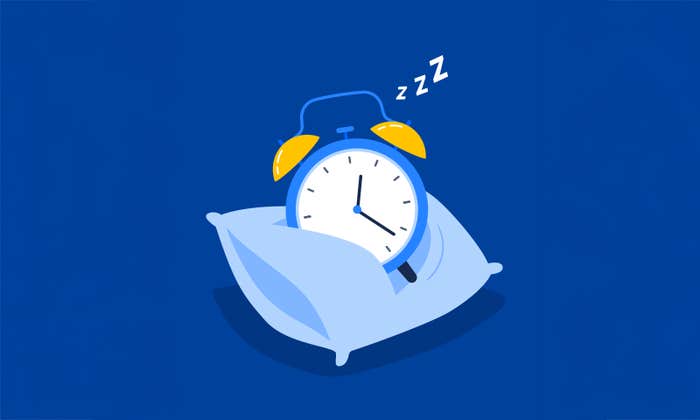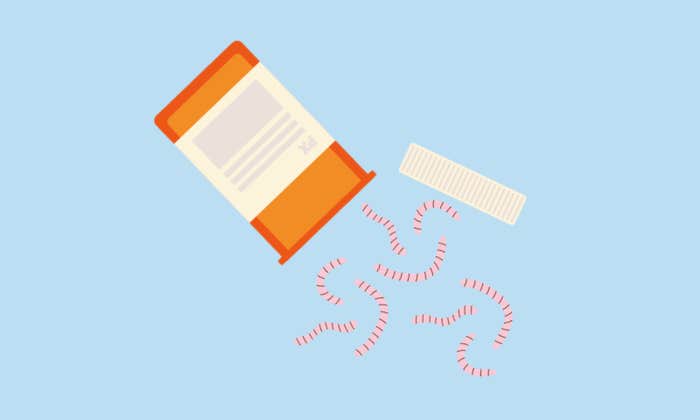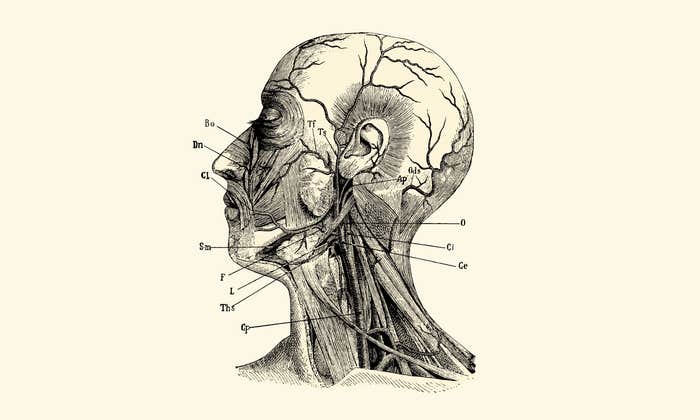Walter A. Brown envisions it clearly. The day will come when a woman can walk into his office complaining of debilitating panic attacks and depression, and he will draw a vial of blood and ship it off for genetic analysis. When the test results come back, they will tell Brown that, according to his patient’s DNA, she should do just as well on sugar pills as on any antidepressant or anti-anxiety drug. Instead of prescribing psychiatric medications, he can send her home with a prescription that reads, simply: placebo.
While such a scenario is purely hypothetical, it might not remain that way for long. Over the past decade, a number of clinical studies have begun to show that people who improve on placebos are genetically different than those who don’t. And although the American Medical Association has long considered it unethical for doctors to give placebos without informing their patients1—the doctor-patient relationship is predicated on a mutual trust—several clinical trials have now shown that placebos do not require deception to be effective.2,3,4 “Contrary to what intuition would tell you, many people are willing to take a substance when they are told it is a placebo,” says Brown, a psychiatrist at the Warren Alpert Medical School of Brown University in Rhode Island and the author of The Placebo Effect in Clinical Practice.
These patients might actually do worse than others on certain kinds of active drug therapies.
For someone who fits the placebo-responder profile, the exact therapy may be far less influential than the person’s own expectations. A man with chronic pain, for example, might do just as well on a multivitamin regimen as he would on addictive analgesics. For someone like him, the act of doing something can make all the difference. The ritual of going to a doctor offers reassurance. A diagnosis helps alleviate concerns. The symbolic white coat, prescription pad, and pills provide powerful symbols of a physician’s healing power. These factors work together to inspire confidence, arouse hope, reduce anxiety, and ultimately evoke anticipation of benefit. Combined, they contribute to an increase in neurotransmitter production that aids healing even in the absence of active pharmaceuticals.
The challenge now is to determine who has most to gain from placebos in any form.
DNA tests “offer the first real opportunity to make the distinction between placebo responders and non-responders,” says Howard Brody, a physician and medical ethicist at the University of Texas Medical Branch in Galveston. “The implication of being labeled as a ‘placebo responder’ is quite different than it was decades ago. The result now is something that people would be willing to hear and use as a factor in their care.”

For decades, the medical establishment considered the placebo effect to be a purely subjective phenomenon. But a growing body of evidence, buoyed by brain-scanning work of recent years, has revealed that pharmacologically inert treatments can cause dramatic physiological and biochemical changes in the brain.
Placebos trigger the release of certain neurotransmitters—chemicals that carry messages throughout the neural circuitry and activate the brain’s reward system—thereby leading to improvements in a variety of diseases. But not all patients have the same degree of neurotransmitter activity. Several studies have shown that DNA variants that code for enzymes involved in fine-tuning the levels of various neurotransmitters affect placebo responsiveness in conditions ranging from major depression5 to social anxiety6 to arthritic joint pain.7
In research8 published in 2012, Ted Kaptchuk and Kathryn Hall at the Beth Israel Deaconess Medical Center in Boston found that different versions of a gene called COMT could predict placebo response in people with irritable bowel syndrome (IBS). The gene carries the recipe for catechol-O-methyltransferase, an enzyme that breaks down dopamine in the brain’s prefrontal cortex, and people with different versions, or alleles, of the gene have varying levels of the neurotransmitter. When Kaptchuk, Hall, and their colleagues analyzed the data of 104 people with IBS who had been randomized to receive either placebo acupuncture or no treatment at all, they found that subjects with higher dopamine levels—and thus a COMT allele that is less efficient at dopamine breakdown—proved most prone to improvement.
These same kinds of patients might actually do worse than others on certain kinds of active drug therapies. In two independent studies, healthy people who had the placebo-responding version of the COMT gene fared better on cognitive and memory tasks after taking an inert pill than they did after taking tolcapone, a drug that is used in Parkinson’s patients to inhibit the COMT9,10 enzyme and control disease symptoms. Those with the opposite COMT genotype, however, did better on tolcapone in both studies, suggesting that tolcapone and other drugs that act via dopamine signaling may interfere with the placebo response. In the future, genetic testing might help doctors avoid actively disrupting the placebo effect in people who are most prone to it.11
“It’s still early days and things need to be validated,” says Hall. But she believes that, once the corroboratory data are in, “medicine will change if you know you’re a placebo responder.”
It’s already relatively easy to determine someone’s COMT status, either through direct-to-consumer kits offered by companies like 23andMe or through the standalone, clinical tests doctors can use to tailor drug treatments for schizophrenia patients. And because COMT and other neurotransmitter-linked genes have known roles in the tolerability and efficacy of certain antidepressants, stimulants, and other medications, several companies also include them in multi-gene panels designed to personalize treatment for a range of psychiatric conditions.
“Look, these capsules don’t contain any active medicine. Some people call them placebos, but a lot of people with your condition improve with this.”
If the early studies hold up, the first beneficiary will likely be the pharmaceutical industry. As it stands, many experimental drugs flunk in clinical trials because they fail to prove superiority over placebo treatments. If a genetic test could identify likely placebo responders and exclude them from participating in trials, drug companies might have greater clinical success in their studies.
Wayne B. Jonas, president and CEO of the Alexandria, Virginia-based Samueli Institute, a nonprofit research organization focused on the science of healing, points out that a genetic test could also identify people most in need of active medications. “[It] would be useful for knowing who is a non-responder,” Jonas says, because those people likely have less to gain from alternative therapies.
But in everyday clinical practice, Brown envisions how he could put his patients’ test results to work. “I might have a bottle of pills in my office that were green or yellow. I’d give them those and say, ‘Look, these capsules don’t contain any active medicine. Some people call them placebos, but a lot of people with your condition improve with this, and it may be that the fact of taking these stimulates the body’s own healing processes.’ ”
Despite optimism from some in the medical community—and the fact that many physicians prescribe some form of placebo treatment on a regular basis12,13—the field remains divided about the utility of genetic tests. “There is not a single placebo response and there is not a single mechanism,” says Fabrizio Benedetti, a neuroscientist and placebo scholar at the University of Turin Medical School in Italy.
Frank Miller, a bioethicist at the National Institutes of Health Clinical Center in Bethesda, Maryland, agrees. “There is very little prospect in the foreseeable future for genetic tests of placebo responsiveness to have any clinical utility,” he says, “especially given the situational and contextual variability of placebo effects.”
Beyond scientific roadblocks, the litigious nature of the healthcare system might preclude a genetically guided placebo approach, notes Anil Malhotra, director of psychiatry research at Zucker Hillside Hospital, which is part of North Shore–LIJ Health System in Queens, New York. Malhotra doesn’t think any doctors would be willing to try placebo treatments on the acutely sick individuals admitted to his hospital for inpatient care: If a placebo therapy doesn’t work, it would not only be disastrous for the patient but also leave the medical staff vulnerable to malpractice lawsuits. Whether or not a patient is a predicted responder, Malhotra expects each one would get active drug treatments.
For patients, however, the notion of genetic testing for placebo responsiveness might be less equivocal. Many people, notes Brown, “don’t believe drugs are good for you. They believe in the power of self-healing.” And for at least some of them, the reality of self-healing might literally be a self-fulfilling prophecy.
Elie Dolgin is a science writer in Somerville, Massachusetts.
References
1. Principles of Medical Ethics (1980). American Medical Association. http://www.ama-assn.org/ama
2. Park L.C. & Covi, L. Nonblind placebo trial: An exploration of neurotic patients’ responses to placebo when its inert content is disclosed. Archives of General Psychiatry 12, 36–45 (1965).
3. Sandler, A.D. & Bodfish, J.W. Open-label use of placebos in the treatment of ADHD: a pilot study. Child Care, Health and Development 34, 104–110 (2008).
4. Kaptchuk, T.J. et al. Placebos without deception: A randomized controlled trial in irritable bowel syndrome. PLoS One 5, e15591 (2010).
5. Leuchter, A.F., McCracken, J.T., Hunter, A.M., Cook, I.A., & Alpert, J.E. Monoamine oxidase a and catechol-o-methyltransferase functional polymorphisms and the placebo response in major depressive disorder. Journal of Clinical Psychopharmacology 29, 372–377 (2009).
6. Furmark, T. et al. A link between serotonin-related gene polymorphisms, amygdala activity, and placebo-induced relief from social anxiety. The Journal of Neuroscience 28, 13066–13074 (2008).
7. Gracely R. et al. Association of genetic polymorphisms with response to placebo treatment in patients with osteoarthritis knee pain. International Association for the Study of Pain 13th World Congress (2010).
8. Hall, K.T. et al. Catechol-O-methyltransferase val158met polymorphism predicts placebo effect in irritable bowel syndrome. PLoS One 7, e48135 (2012).
9. Apud, J.A. et al. Tolcapone improves cognition and cortical information processing in normal human subjects. Neuropsychopharmacology 32, 1011-1020 (2007).
10. Farrell S.M., Tunbridge E.M., Braeutigam S., & Harrison P.J. COMT Val158Met genotype determines the direction of cognitive effects produced by catechol-O-methyltransferase inhibition. Biological Psychiatry 71, 538–544 (2012).
11. Kall, K.T. & Kaptchuk, T.J. Genetic biomarkers of placebo response: what could it mean for future trial design? Clinical Investigation 3, 311-314 (2013).
12. Tilburt, J.C., Emanuel, E.J., Kaptchuk, T.J., Curlin, F.A. & Miller, F.G. Prescribing “placebo treatments”: results of national survey of US internists and rheumatologists. The BMJ 337, a1938 (2008).
13. Howick, J. et al. Placebo use in the United Kingdom: results from a national survey of primary care practitioners. PLoS One 8, e58247 (2013).


























